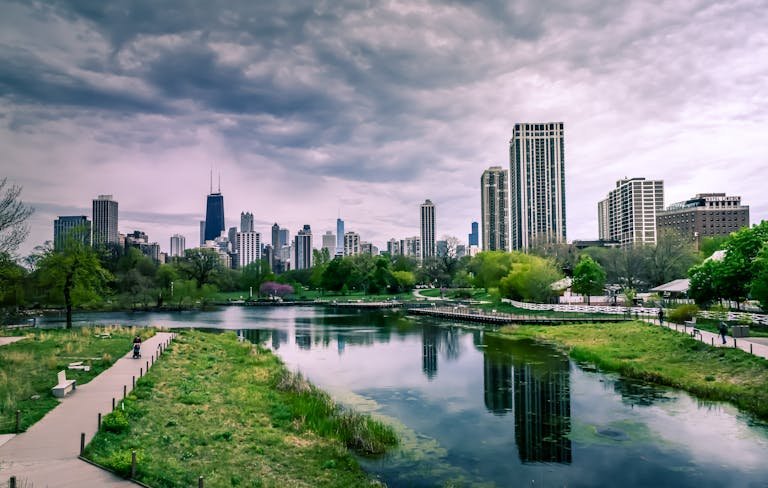Seasonal Grounding: Adopting a year-round Earthing Practice
Have you ever noticed how refreshed you feel after a walk on the beach or a hike in the woods? There’s a good chance you’ve experienced the benefits of grounding, also known as earthing, without even realising it. This simple practice of connecting directly with the Earth’s surface has been gaining popularity in recent years but many overlook the importance of adapting their earthing practice routine to the changing seasons. Let’s explore how you can maintain a seasonal grounding all year round.
Understanding Grounding Basics
Before we dive into seasonal adaptations, let’s quickly recap what grounding is all about. The concept is straightforward: it involves making direct skin contact with the Earth’s surface. Proponents believe this allows our bodies to absorb the Earth’s natural electrical charge, potentially reducing inflammation and improving overall well-being. If you’re interested in learning more about grounding then read our guide on that too.
Spring: Awakening Your Grounding Practice
When nature springs back into life, it can be a perfect time to renew your connection with the Earth.

Morning Dew Walks
Take advantage of dewy grass in the early mornings. Sit out for an early morning session or stand and breath in the early morning air, with your feet in the dew. The moisture enhances conductivity, making it an ideal time for getting the most from grounding.
Mindful Gardening
Spring is planting season. Why not combine your gardening with grounding? Working barefoot in the soil can be both productive and beneficial for your health.
Rainy Day Adaptations
The dreaded April showers don’t have to stop your practice. If your circumstances allow, consider using a covered porch or patio to stay dry while maintaining Earth contact. You just need those feet or hands to make contact with the earth whilst the rest of you stays dry.
Summer: Making the Most of Warm Weather
Summer offers abundant opportunities for grounding, with its long days and inviting temperatures. It really is the season of no excuses!

Beach Grounding
If you’re near the coast, take full advantage. Sand and saltwater are excellent conductors, making beaches ideal for grounding.
Forest Bathing and Grounding
Combine the Japanese practice of shinrin-yoku (forest bathing) with grounding by walking barefoot in wooded areas. It’s a great way to connect with nature on multiple levels.
Outdoor Yoga or Meditation
Take your mindfulness practice outside. Performing yoga or mindfulness meditation while in direct contact with the Earth can enhance the experience.
Autumn: Transitioning Your Practice
As temperatures cool and leaves change, its time to dig deep and adapt your grounding routine to the season. This can be a disruptive time for your practice and is good time to invest in some products to sustain your grounding

Leaf Walking
There’s something satisfying about walking through fallen leaves. Do it barefoot for a multi-sensory grounding experience.
Harvest Connection
If you have a garden, grounding while harvesting your autumn crops can be a rewarding way to connect with the Earth’s cycles.
Bonfire Grounding
Enjoy the warmth of a bonfire while seated on the ground. It’s a cozy way to maintain your practice as temperatures drop.
Winter: Overcoming Cold Weather Challenges
Winter presents the biggest obstacles to traditional grounding practices, but with some creativity, you can maintain your routine.
Indoor Grounding Solutions
Invest in grounding mats or sheets for indoor use. These can be especially useful for grounding while you sleep.
Heated Areas
Look for spots where snow has melted, such as near building foundations or sun-exposed rocks, for brief outdoor sessions.
Foot Soak
This is a cozy indoor option that’s perfect for chilly evenings:
- Fill a basin with warm water and add some Epsom salts.
- Place a grounding rod or stake in the water, connected to the ground outside (through a window or door).
- Soak your feet for 15-30 minutes while you read, watch TV, or just relax.
It’s like a spa treatment and grounding session rolled into one. Plus, the Epsom salts can help soothe tired feet.
Seasonal Grounding Tips
Regardless of the season, keep these points in mind:
Safety First: Always be aware of your surroundings and potential hazards.
Start Small: Begin with short sessions and gradually increase duration.
Listen to Your Body: Pay attention to how you feel during and after grounding.
Stay Consistent: Regular short sessions are better than infrequent long ones.
Conclusion
Adapting your earthing practice for seasonal grounding allows you to maintain a connection with the Earth year-round. By being flexible and creative, you can overcome environmental challenges and potentially enhance the benefits of this simple yet powerful practice.
Remember these key takeaways:
- Be adaptable: Adjust your methods based on weather and seasonal changes.
- Explore indoor options: Use grounding tools when outdoor practices aren’t feasible.
- Maintain consistency: Aim for regular grounding sessions, even if they’re brief.
By embracing the changing rhythms of nature and staying open to various grounding methods, you can cultivate a year-round practice that supports your well-being and deepens your connection to the Earth.







